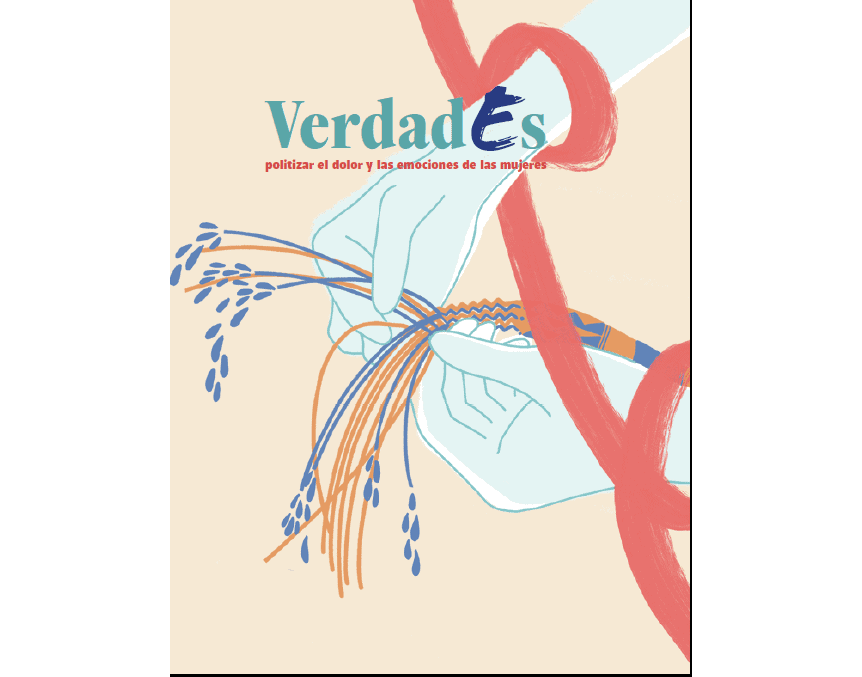December 2021

VerdadEs: politizar el dolor y las emociones de las mujeres (TruthIs: Politicising Women’s Pain and Emotions) a report presented to the Truth Commission by women from Cauca, Córdoba and Meta departments together with the feminist Colombian organisation Casa de la Mujer. The report is about women’s experiences of multiple forms of violence during the internal armed conflict. It analyses the structural roots of violence against women in a patriarchal society, making recommendations to ensure “no-repetition”. Published in Spanish.
It highlights the pluralisation of violence against women, their double displacement from the private to the public and from the public to the private, it examines the territory of the body as a place of dispute and memory about emotions, from personal and collective experience, and from the articulation of the armed conflict and patriarchy.
This report has been submitted to Colombia’s Truth Commission, created in 2016 as part of the agreements in the Peace Accord. Its purpose is to reveal the truth about human rights violations perpetrated by the Security Forces, the FARC-EP and third parties that occurred during the armed conflict between 1958 and 2016. Central to this the recognition of the victims, the responsibility of those who perpetrated violence in order to ensure non-repetition.
The report discusses the importance of politicising women’s pain and emotions as a means of raising public awareness about violence perpetrated against women during the conflict in an effort to create guarantees these harmful acts will not be repeated. It specifically addresses the situation in Meta, Córdoba, and Cauca departments outlining the situation of women before the armed actors arrived, women’s experiences after they arrived, the acts of violence committed against women, women’s emotions and resistance, and the patriarchal logic and practices of violence perpetrated against women.
The report highlights that the women identified that during the armed conflict, sexual violence became an almost inevitable fact, it was perpetrated by tall armed actors, as well as by men who were part of their families and the community.
“Those who were victims of sexual violence express that they kept silent about the fact because they considered that they would not be believed or that they would be punished. This idea, according to them, was permanent in their lives, mainly in those who experienced the events between the ages of 13 and 16, which correspond to 50% of the documented cases. The silence that follows sexual violence is rooted in imageries that make the female victims responsible for the act… The silence of the women operated as a strategy that sought to protect their lives and prevent further abuse and violence…”
In my town there was a lot of violence, they raped many girls until now, in the 90’s they raped one girl who studied with my 12-year-old daughter, they raped her and left her under a bush, she didn’t return to school. When she was found she was without any eyes because the buzzards had eaten her, but she says she was raped, mistreated and everything, she disappeared for three days. They were adults who [raped] these girls. (page 57)
It is therefore essential to ensure that there are no amnesties for conflict related sexual violence an agreement made in the Peace Accord. Many women explained in this report that sexual and gender-based violence was happening before as well as during the conflict. The conflict exacerbated a situation that also exists outside of the conflict driven by patriarchal attitudes. Therefore, there can be no peace for women unless conflict sexual and gender-based violence is specifically addressed both in the Truth Commission’s Report due out in July 2022 and before the Tribunal in the Special Jurisdiction for Peace by opening a national (macro) case in which conflict related sexual violence perpetrated by the Security Forces and former FARC-EP members against women is addressed.
